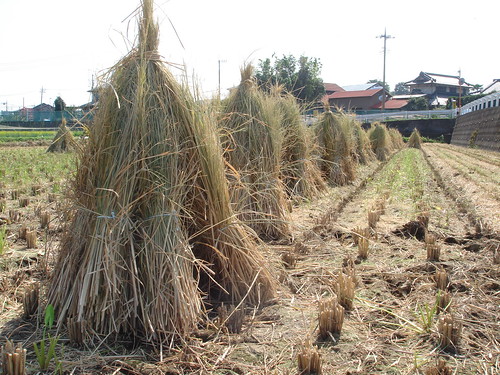The Japanese Ministry of Agriculture, Forestry and Fisheries recently announced that it has chosen Akita Prefecture from among applicants as a location to conduct a model project utilizing soft cellulose. The model project aims to conduct verification tests to establish a technology for production of bioethanol made from soft cellulose biomass, such as rice straw and husk that do not compete with food supply.
Raw materials for the bioethanol production will be rice straw and husk produced in Ogata Village on the reclaimed land of Hachirogata, one of the leading rice-growing areas in Japan. Akita Agriculture Public Corp. will collect and transport the biomass materials, while Kawasaki Plant Systems of the Kawasaki Heavy Industries Group has been contracted to produce the biofuel and conduct verification tests of the biofuel from fiscal 2008 through 2012.
As announced on November 14, 2008, the bioethanol production system to be installed in Katagami City consists of pre-processing, glycation, fermentation and distillation processes. The glycation process employs an advanced bioethanol production technology with a thermal system that Kawasaki is jointly developing with the New Energy and Industrial Technology Development Organization (NEDO). The system's production capacity is projected to be 200 liters per day, with maximum production capacity of 22.5 kiloliters per year for 112 operating days. The fermentation residue can be used to make compost. The field tests are planned to be conducted in Ogata Village with E10 gasoline containing 10 percent bioethanol.
- Ministry of Agriculture, Forestry and Fisheries
http://www.maff.go.jp/e/index.html
- Kawasaki to Lead National Bioethanol Model Demonstration Project
http://www.khi.co.jp/ba/2008data/ba_c3081118_1.html


No comments:
Post a Comment